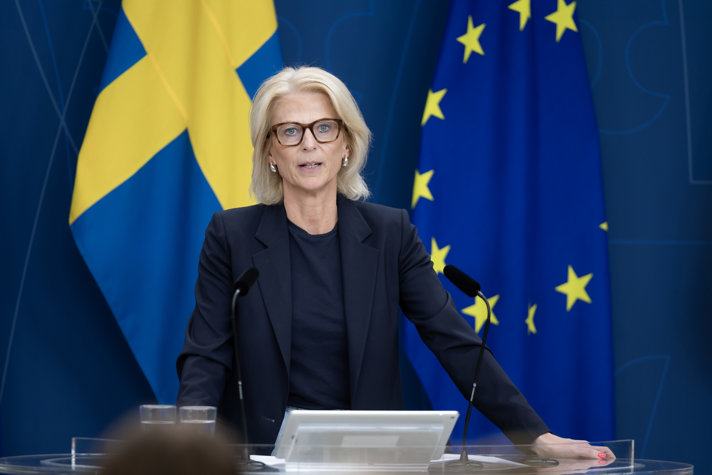The fight against inflation has been won
Published
Inflation in Sweden has decreased and the target is expected to be reached this year. At the same time, the labour market situation has worsened and unemployment has risen. The Swedish economy is expected to remain in recession until 2025, but recovery is approaching. These are the conclusions of the Ministry of Finance in a new economic forecast. The Government’s inflation-focus is now shifting from fighting to monitoring, while Sweden will be built to be more prosperous.

Web TV
You can follow the live broadcast or watch the recording on Government.se or the Government Offices YouTube channel.
“The fight against inflation has been won, and now we are shifting our focus from fighting it to monitoring it. At the same time, the Swedish economy continues to be under strain, with rising unemployment and weak domestic demand. For this reason, we are now concentrating on making Sweden more prosperous again,” says Minister for Finance Elisabeth Svantesson.
Lower inflation is particularly being driven by lower energy and fuel prices. This is because electricity prices are lower than they were a year ago, and fuel prices are also lower as a result of the Government decreasing the reduction obligation and fuel taxes. Persistently low energy prices and weak demand in the economy are expected to further dampen inflation moving forward.
Domestic demand in Sweden has continued to stagnate in early 2024, and both household consumption and housing investments have decreased. Higher interest rates and the negative effects of high inflation on the Swedish economy are expected to subside during the year, and a recovery is expected going forward. However, this recovery will take time as there will be a delay before housing investments have an effect. The economy is therefore expected to be in recession until 2025.
“Our assessment is that the recession will persist for a while. But with the fight against inflation now won, and interest rates receding at the same time as real wages are rising, household consumption is expected to grow,” says Minister for Finance Elisabeth Svantesson.
The labour market situation has continued to weaken in the early stages of the year. The employment rate has decreased as unemployment has increased. Demand for labour is expected to be weak throughout 2024, with unemployment continuing to rise as a result. The economy is expected to gradually rebound in 2025 as demand for labour increases.
Press contact
Press Secretary to Minister for Finance Elisabeth Svantesson
Phone (switchboard) +46 8 405 10 00
Mobile +46 76 141 14 79
email to Niklas Gillström

 X
X